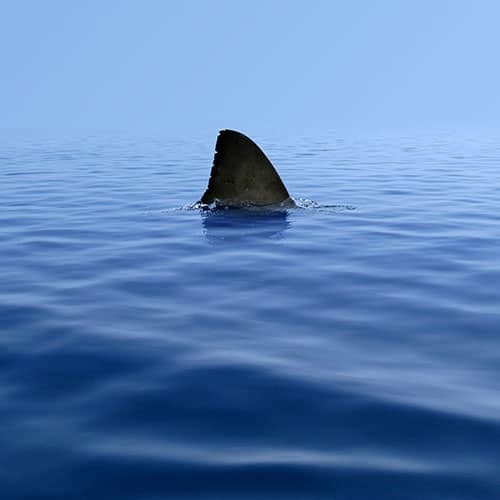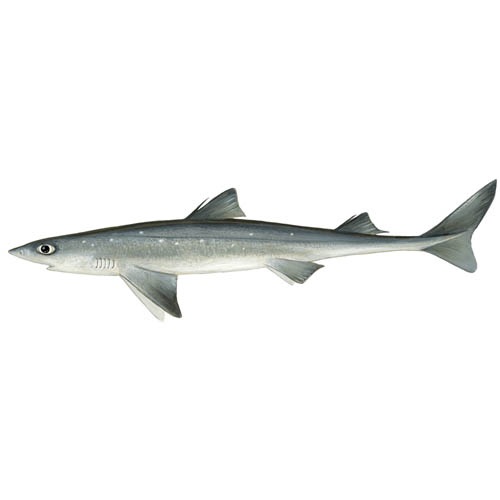The MSC is proposing stronger measures to prevent shark finning. This Q+A explains what they are and why they are being put forward.
Why the need for action on shark finning?
The high demand for shark fin products means that many sharks are caught to have their fins and tails removed before the rest is disposed at sea. When a shark has its fins removed and is cast overboard alive, it is unable to swim or breathe, so it drowns.
Shark finning is illegal in many countries, with MSC commissioned research finding that 21 out of the 43 nations that catch the most sharks, have finning bans in place.
How does shark finning hamper conservation efforts?
Sharks are slow-growing, long-living fish that produce few offspring. These traits make them highly susceptible to overfishing, with shark finning being one of their biggest threats. Half of the world's 31 oceanic shark species are now listed as either endangered or critically endangered by the International Union for Conservation of Nature.
What are the new shark finning policy proposals?
Our proposals on shark finning are part of a wider periodic review of our requirements and they include:
1. A mandatory Fins Naturally Attached (FNA) policy for all fisheries that retain sharks with no exemptions.
Under this proposal, fisheries that retain sharks can only be certified if they have a mandatory Fins Naturally Attached policy. This means that all sharks retained by a fishery must be landed with their fins attached and fins cannot be removed at sea.
Consultations with stakeholders, as well as independent research commissioned by the MSC, pointed to the Fins Naturally Attached policy being the most viable option to ensure shark finning is not taking place.
2. Fisheries must provide strong evidence that shark finning is not occurring
In addition to having the right policies in place, fisheries must provide strong evidence that they are being implemented. This will apply to all fisheries interacting with sharks.
As well as fisheries that retain sharks, this will also be required in fisheries that have to release sharks they have caught. For example, a vessel that operates in a shark sanctuary may be required by law to release any sharks they accidentally catch under a non-retention policy. We want to make sure those fisheries are not shark finning and that they provide externally-validated information to prove this, in the same way we expect fisheries with a FNA policy to do.
3. Defining all shark species vulnerable to shark finning
There are over 500 species of shark in our oceans yet there is no globally accepted definition for ‘shark’ in fisheries legislation. This lack of a definition led to inconsistencies in assessments, so our new proposal clarifies that our requirements apply to any species of Selachimorpha (true sharks) and Rhinopristiformes (e.g. guitar fishes and shovelnose rays).
This covers all the species most vulnerable to the shark fin trade and exceeds the legal requirements of many jurisdictions where the term ‘shark’ is applied. However, if a fishery operates within a jurisdiction which defines additional species as sharks, then the assessor must consider those species too.
What difference will these new requirements make?
We believe they will increase confidence that shark finning is not taking place within MSC certified fisheries and help drive sustainable fishing practices that contribute to the conservation of sharks. But you have an opportunity to tell us what you think through our public review which runs until Monday 4 April.
Our proposal on shark finning is part of a periodic review of our Fisheries Standard to reflect the evolution and uptake of best practice in fisheries management.
You can find out more about the other changes being proposed in our Fisheries Standard Review

The Fisheries Standard Review
The MSC regularly carries out a formal review of the MSC Fisheries Standard to make sure our assessment and certification system remains the leading measure of fisheries sustainability.

Ending shark finning
Shark finning is a wasteful and abhorrent practice which is prohibited within MSC certified fisheries. The MSC is committed to ensuring shark finning does not take place in MSC certified fisheries.

Sharks and sustainable fishing
Sharks provide a valuable source of protein for many communities around the world. They are important predators that help keep marine ecosystems in balance. This means sharks must be fished sustainably in order to maintain a healthy ocean.
